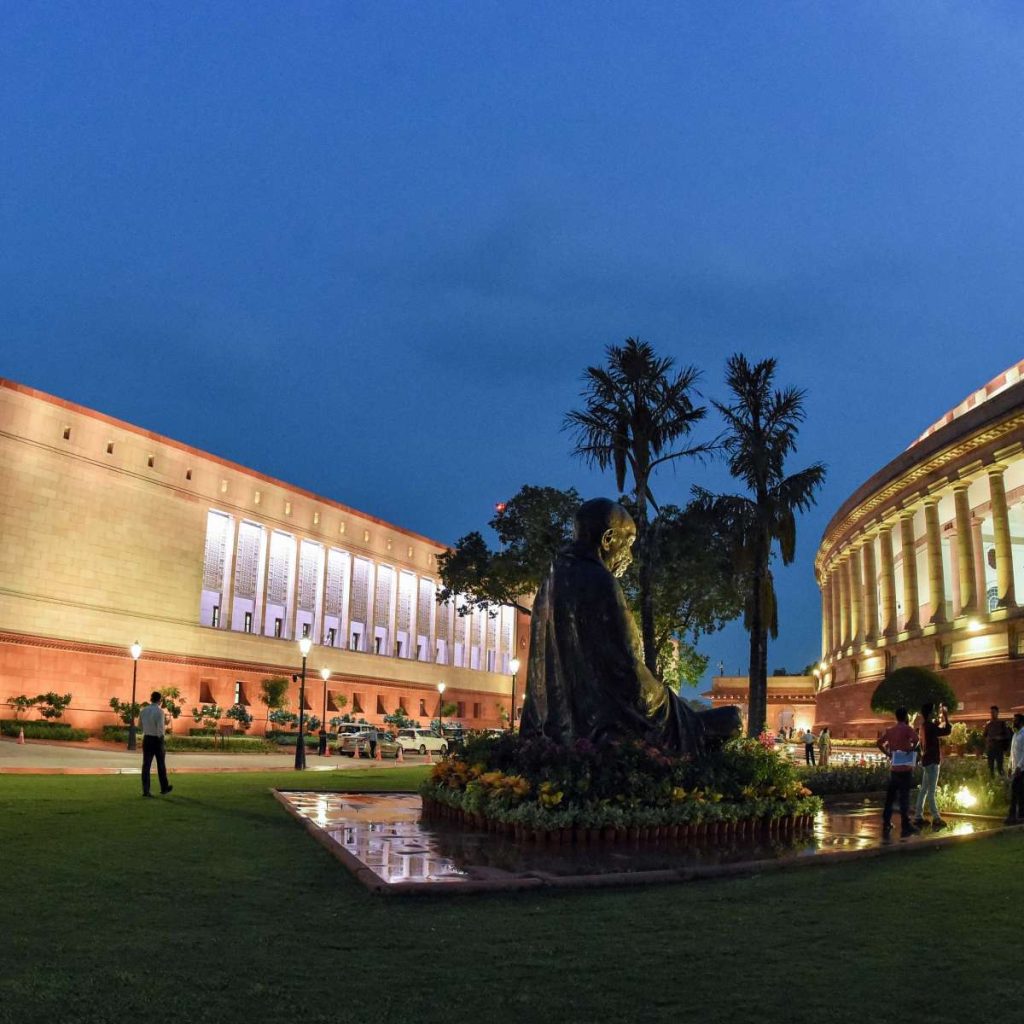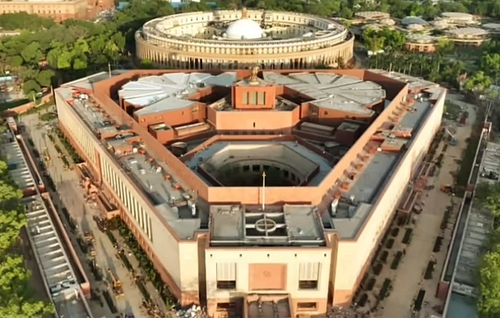Parliamentary Affairs Minister Pralhad Joshi said in a post on X that the session will have 15 sittings spread over 19 days…reports Asian Lite News
The winter session of Parliament will be held next month from December 4 to 22. Parliamentary Affairs Minister Pralhad Joshi said in a post on X that the session will have 15 sittings spread over 19 days.
“Winter Session, 2023 of Parliament will commence from 4th December and continue till 22nd December having 15 sittings spread over 19 days. Amid Amrit Kaal looking forward to discussions on Legislative Business and other items during the session,” he said.
The session will be held a day after the declaration of results of assembly polls in five states – Rajasthan, Madhya Pradesh, Chhattisgarh, Mizoram, and Telangana.
The outcome of the polls is expected to have resonance in the session.
While the government will seek to push its legislative agenda, opposition parties are likely to press for discussion on issues of concern for them.
Several important Bills are likely to be taken up for consideration and passage during the Winter Session, including three legislations seeking to replace the Indian Penal Code, the Evidence Act, and the Code of Criminal Procedure, as well as a Bill related to the appointment of the chief election commissioner and election commissioners.
Another item on the agenda will be the Lok Sabha Ethics Committee’s report on the “cash-for-query” allegations against Trinamool Congress MP Mahua Moitra, recommending her expulsion from the Lok Sabha. In order for the expulsion to come into effect, the House must adopt the panel’s report.
This will also be the first full session to be held in the new Parliament building. A five-day Special Session had been held in September, during which the Lok Sabha and Rajya Sabha had ceremonially moved their sittings to the new building.
The historic Women’s Reservation Bill was the first legislation to be passed in the new Parliament building. It seeks to provide 33% reservation for women in the Lok Sabha and State assemblies.

The 75-year history of the old Parliament building was also commemorated during the Special Session. That building will now be used as an additional space for parliamentary events, and a part of it will be converted into a museum to preserve the history of the iconic structure.
The Winter session will be concluded before Christmas and will be the last session of the parliament this year.
The BJP-led NDA government called a five-day special session of the Parliament in September. The special session was conducted in the new parliament building, in which the government discussed the 75-year history of the old parliament building, which will be retrofitted to provide additional space for parliamentary events and a part of the old building will be converted into a museum to preserve the history of the iconic structure.
However, the winter session in 2022 – from 7 December to 23 – was the shortest in recent decades, with only 13 sittings. The winter session in 2021 – from 29 November to 22 December – convened for 18 days. In 2019, it was scheduled from 18 November to 13 December, with 20 sittings. The Parliament did not have a winter session in 2020 because of the pandemic.
Earlier, a 5-day-long special session of Parliament was held to enter the new Parliament building from September 18 to 22. The special session witnessed historical moments when the first session in the new building was organised and the Women’s Reservation Bill (Nari Shakti Vandan Adhiniyam) passed. Parliamentarians also took part in the discussion on Parliament’s 75-year journey, starting from the Constituent Assembly that first met on December 9, 1946.
Earlier, the Monsoon Session of 2023 was held from July 20, 2023 to August 11, 2023. Lok Sabha functioned for 43% of its scheduled time and Rajya Sabha functioned for 55%. Twenty-three Bills were passed during this session. This session also saw the discussion on the first no-confidence motion of the 17th Lok Sabha.
his session saw high legislative activity despite Parliament working for just half of its scheduled time. Most Bills were passed with little scrutiny. 56% of Bills introduced in this session were passed by both Houses. On average, a Bill introduced in this session was passed within eight days of introduction.
For example, Bills expanding the discretionary powers of the LG in Delhi, allowing for mining of strategic minerals like lithium, and regulating personal data were passed by Parliament within seven days of introduction. The Anusandhan National Research Foundation Bill, 2023 was passed within five days of introduction.
Out of 25 Bills introduced, three have been referred to committees. In this Lok Sabha, so far, 17% Bills have been referred to Committees. This is lower as compared to the last three Lok Sabhas. Of the 23 Bills passed in this session, seven have been examined by Standing Committees.
ALSO READ-Parliamentary Panel to Review 3 Bills to Replace Criminal Laws

